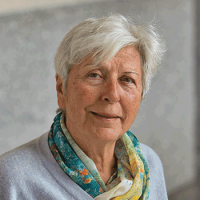The United Nations Secretary-General António Guterres, some heads of state, as well as humanitarian organizations and NGOs have appealed repeatedly to all parties involved in conflicts in the Middle East, and particularly in Yemen, to enter into ceasefire agreements as the global health emergency continues. From the point of view of those issuing the appeals, halting the fighting during an emergency is an obvious, rational step which should be uncontroversial: the first priority for all is to curb a pandemic that threatens the entire world. Yet the appeals have remained by and large unheeded, because most of those engaged in conflict have a different set of priorities and their actions respond to a different logic.
The fact that conflicts in the Arab region are continuing despite the threat from COVID-19 is tragic, but not surprising. There is little historical evidence that epidemics put an end to wars. At best, they lead to a temporary lull as depleted armies reassemble before they resume fighting. But most often fighting continues unabated, adding another layer of deaths to those that war is already inflicting on civilians and combatants. At the end of World War I, for example, as the Spanish flu pandemic swept through the rival armies, fighting continued while the leaders did their best to conceal the gravity of the situation for fear of encouraging their adversaries—who in reality were equally affected. There is a horrible rationality to the persistence of conflict under such circumstances: the increased number of death due to disease does not change the political calculus that led rivals to war in the first place. Furthermore, both civilian and military casualties are a normal part of war that decision-makers take for granted. Today, the language of war has become more politically correct, but the fact remains that politicians tend to dismiss deaths in the name of a higher national interest, at least as long as they do not lead to a backlash at home.
The fact that conflicts in the Arab region are continuing despite the threat from COVID-19 is tragic, but not surprising. There is little historical evidence that epidemics put an end to wars.
The reaction to the coronavirus pandemic seems to confirm this reality. So far it does not appear to have altered the course of ongoing conflicts in Iraq, Syria, Yemen, or Libya, nor has it led to a rapprochement between the Arab Gulf states and Iran. It does not even appear to have impacted the urgency of forming a new government in Iraq. The countries whose policies appear to be affected by the spreading pandemic are those for whom the conflicts are of secondary importance, one of their many interests rather than an existential issue. The conflict in Yemen, for example, is existential for the Houthis, but not for Saudi Arabia, whose leadership was already beginning to question the wisdom of its involvement in the conflict. This explains why Saudi Arabia was willing to declare a ceasefire unilaterally while the other side only reluctantly agreed to join and then proceeded to violate the agreement repeatedly.
All sides know that the threat posed to the peoples of Yemen by the coronavirus pandemic is enormous. The country has a vulnerable population already weakened by conflict and disease and poor—in many areas non-existent--health facilities. A cholera epidemic has gripped the country for several years, with almost 700,000 cases counted by September 2019. The first official case of coronavirus was not announced until early April, but the infection was already widespread by then. Some humanitarian organizations believe that the disease could quickly infect the majority of the population.
Saudi Arabia, the main external actor in Yemen after the gradual pullout of the United Arab Emirates forces beginning in mid-2019, declared a unilateral ceasefire on April 9 as the virus was spreading rapidly on the peninsula. It also announced that the official but powerless Yemeni government in Riyadh would do the same. The Houthis, who were making progress seizing territory, demurred at first, then accepted the ceasefire the next day. But Houthi violations started immediately. A week later, United Nations officials concluded that the ceasefire had failed to halt hostilities and that the talks toward a permanent solution were not taking place.
It is tempting to look at the Saudi offer and adherence to a ceasefire, compared to the Houthis’ hesitancy and violations, as examples of a rational versus an irrational reaction to the coronavirus threat. However, in a perverse way both sides acted rationally according to the logic of their goals and interests.
The case of Iraq better explains why political and military actors with different motives react differently to the spread of the virus that mutually threatens them. The epidemic has hit the country hard, but the government is reluctant to reveal figures. When the Reuters press agency published an article on April 2 disputing the official claim that there were only 772 cases of the virus in the country, the government suspended its license for three months. Yet, there are some 80,000 cases next door in Iran over a frequently crossed border, and Iraqi cities are on complete lockdown.
The problem of narrow interests trumping the common imperative for safety starts with the political class. Iraq has only had a caretaker government since November 2019, when Prime Minister Adel Abdul Mahdi, unable to quell street protests that has swept through cities and towns for a month, resigned. Abdul Mahdi was a weak prime minister with limited domestic support and caught in the war for influence between the United States and Iran. He stayed on as a caretaker with even less authority than before as the parties embarked on the complicated and lengthy process of forming a new government.
The first candidate the president tasked to form a government, Mohammed Tawfiq Allawi, gave up on March 1. The second candidate, Adnan Zurfi, gave up on April 9. In both cases the failure was due to disagreement not only among Shia, Sunni and Kurdish political parties, but among the various Shia factions, divided over alignment with Iran. The third candidate, Mustafa al-Khadimi, finally appeared close to forming a government at the time of writing, with much haggling among parties on the number of ministerial posts each would get. The epidemic it seemed, had not created enough urgency among Iraqi politicians to overcome sectarian and factional interests.
The epidemic it seemed, had not created enough urgency among Iraqi politicians to overcome sectarian and factional interests.
Protesters were also slow in halting their confrontation with the government, despite the obvious danger of contagion represented by crowds assembling and camping out on public squares. Initially, they denounced measures imposed by the authorities to slow the spread of infections as a pretext to suppress the movement. By the end of March, however, as the number of coronavirus cases increased, the movement officially called a halt to its activities. At this point the characteristics of the movement that helped it survive repression—its decentralized character and lack of hierarchical organization—became a liability. Different groups of protesters remained in some of the main squares of several cities, vowing to continue and pointing out that the government was continuing to kill protesters. The greater movement has declared a return to the streets as soon as possible.
ISIS, which Iraq declared defeated two years ago but remains alive in the country and elsewhere in the region, saw the epidemic not as a reason to stop attacks, but as a golden opportunity to step up its activities while security services where distracted, as declared by its magazine An-Naba ,on March 19. There is no clear evidence at this time that ISIS activity has escalated on the ground, but so far the coronavirus appears to have bolstered its will to fight rather than causing it to desist or at least to pause.
The conflict between the United States and Iran in Iraq was also not affected by the epidemic at least until recently.
The conflict between Iran and the United States escalated steadily during 2019, but during the summer it played out in the Gulf, with Iraq emerging as the main theater at the end of December. A series of Iranian-backed Iraqi attacks on US military installations led the two countries to the brink of war. The most serious incident involved a US drone strike that killed Qassim Soleimani, the commander of the IRGC’s al-Quds Force, on January 5. In turn, the killing triggered a round of retaliations between some Iraqi militias and US forces. The first round of fighting took place before the coronavirus pandemic swept the region. However, in March, militias, particularly Kata'ib Hezbollah, resumed rocket attacks on US installations. While the US retaliated, it also started consolidating the positions of its troops to reduce exposure. In the midst of the pandemic, the United States appears to have become more hesitant to engage heavily in the conflict. The militias, much like ISIS, do not appear hindered by the virus crisis at all.
In the midst of the pandemic, the United States appears to have become more hesitant to engage heavily in the conflict. The militias, much like ISIS, do not appear hindered by the virus crisis at all.
This preliminary evidence confirms the general pattern that it is the political importance of the conflict to those involved, not the threat the virus poses, that affects the response to the pandemic. Fighting in Iraq is optional for the United States, but existential for the militias, ISIS and the protest movement. Political gains are more important than public health to rival politicians. The United Nations, humanitarian organizations and well-intentioned public figures have no choice but to continue their appeals for the cessation of hostilities in the midst of the pandemic. Such appeals are bound to founder because of the logic of conflicting interests and priorities.
The views expressed in this article are those of the author and do not reflect an official position of the Wilson Center.
Author

Former Senior Research Associate and Head of the Middle East Program, Carnegie Endowment for International Peace

Middle East Program
The Wilson Center’s Middle East Program serves as a crucial resource for the policymaking community and beyond, providing analyses and research that helps inform US foreign policymaking, stimulates public debate, and expands knowledge about issues in the wider Middle East and North Africa (MENA) region. Read more





